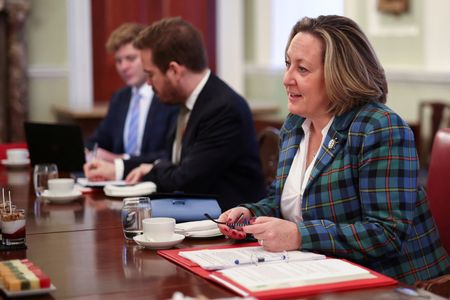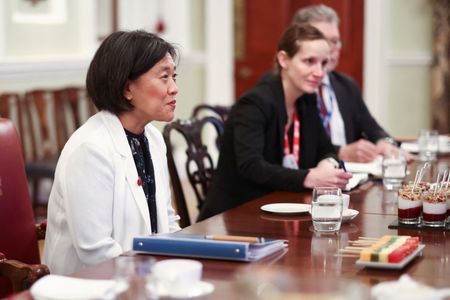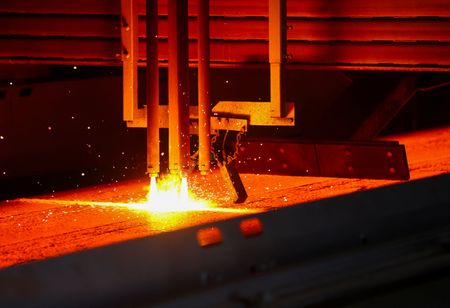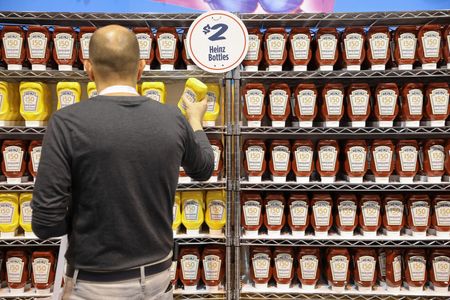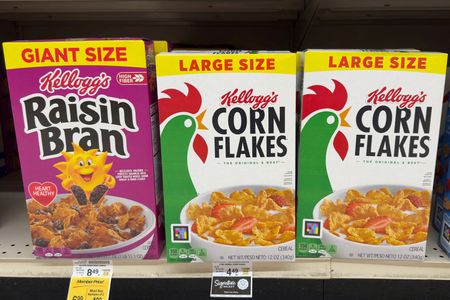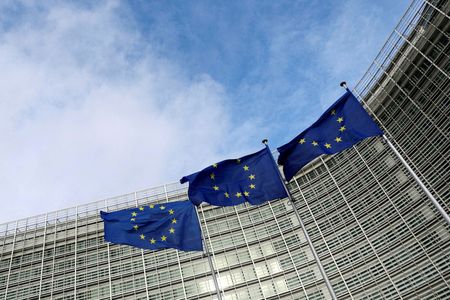By Andrea Shalal
BALTIMORE, Md. (Reuters) -Top trade officials from the United States and Britain will meet in Scotland in April after two days of talks in the U.S. port city of Baltimore on forging deeper and more inclusive trade relations, and a surprise deal on cutting tariffs.
British trade minister Anne-Marie Trevelyan told reporters on Tuesday the meetings had energized efforts by the two historic allies to work together more closely and “stay ahead of the game in a fast-changing global economy.”
Trevelyan and U.S.
Trade Representative Katherine Tai met with industry executives and labor unions, toured the Baltimore port, and visited a minority-owned digital technology firm as part of wide-ranging dialogues aimed at finding new ways to expand trade and investment between the two countries.
“America is at its best when we are working closely with our allies,” Tai told a news conference.
“Secretary Trevelyan and I want to preserve the historic nature of our special relationship while ensuring it properly addresses the urgent challenges of today’s world.”
They both noted that close cooperation between Washington and London in their response to Russia for its invasion of Ukraine underscored the power of cooperation by democracies.
The two trade officials spoke shortly before Trevelyan met with U.S.
Commerce Secretary Gina Raimondo and sealed an agreement that lifted U.S. tariffs on UK steel and aluminum, and retaliatory British tariffs on U.S. motorcycles, whiskey and other products.
In a joint statement on the trade dialogues, Tai and Trevelyan said they had identified areas for deeper cooperation, including protecting labor rights and the environment, promoting supply chain resilience, and supporting the low-carbon transition.
They said it was also vital to make it easier for small- and medium-sized businesses to take part in global trade, including through enhanced access to financing, and ensure that the benefits of trade were distributed across their countries.
Asked about resuming formal negotiations on a bilateral free trade agreement, Tai said such deals were “very 20th century tools” and it was important to look for creative, innovative solutions given new challenges.
While the United States and the European Union had set up a trade and technology council, Tai cautioned that “one size does not fit all,” and said the United States and Britain had their own particular shared values.
Trevelyan said Britain stood ready to pull together a free trade agreement, but added that the purpose of the U.S.-UK current dialogue was “to really be able to think about where we want to be going with our relationship.”
(Reporting by Andrea Shalal; additional reporting by David Lawder; Editing by Mark Porter, Grant McCool and Leslie Adler)

